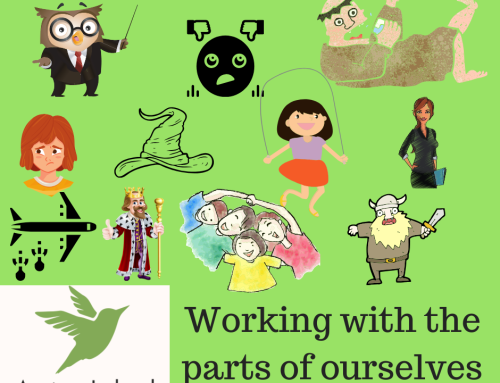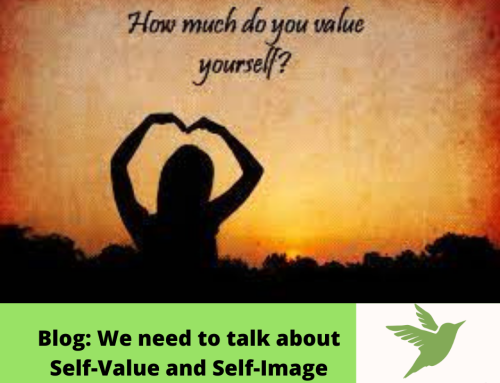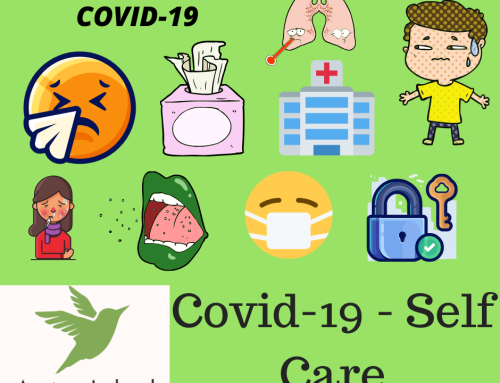Many of us have a complicated relationship with anger. It is often publicly connected with being aggressive, irrational and negative.
If we asked a random group of people to associate a list of things that come to their minds when they think about anger, we might get words like hurt, murder, crime, pain, attack, assault, rage, injury.
While some of us can undoubtedly have too much anger and struggle to contain it, for another entire group of people anger may be disavowed and totally forbidden.
I know I was like this before I began my therapy as a requirement of training. My self image didn’t contain it. But by virtue of being human it was there for me, waiting to be useful!
I am writing this article for those who struggle to use their anger positively and for those that feel they have no boundaries.
Anger is bad?
Anger can seem useless, pointless, destructive and to be avoided at all costs. This is a message that we can get in the home, from family, at school, in church or from society at large.
Maybe we see a family member who always gets angry never express themselves properly. Maybe our parent(s) were so domineering or controlling that being angry or expressing dissent was futile. Or maybe they were so anti-anger that they shhhhh’d all expressions of frustration when we were small.
Either way when we have a complicated relationship with anger it normally leads to anxiety. Our emotions are like all the colours of the rainbow. If we can’t experience them all then something is wrong.
Anxiety is our bodies way of telling us that something is not right. Something is off here, I’m trapped or danger is coming.
Something energetically is naturally off if we suppress and ignore all anger because then we are ignoring our preferences.
Anger remember has a function. It is there to let us know that something here isn’t right, this isn’t okay!
When we feel it we can either use it constructively or destructively or healthily or unhealthily.
Seeing the destructive side of it can make us think it’s all bad, but there is a healthy side of anger too.
Healthy anger
Anger itself isn’t a villain the way it’s painted out to be. We can do a lot with anger. It’s a bit like a hot water tap in a sink though. Just enough can get us a nice pleasant flow. We can literally wash off what we don’t want or accept just like we wash our hands.
However, if we are not careful and skillful with the tap, we can scald ourselves and others. This is typically the version of anger that we see and would rather avoid.
The in someone’s face, violent, burning anger. However anger, by it’s very nature is hot, but heat doesn’t only burn, heat can warm us and give us freedom to move as well.
Stiff cold joints don’t make for the most mobile, and without this sense of what’s happening to us, our freedom to move in relationships and scenarios will be dulled if we suppress the heat of our reaction.
Anger can be productive. It inspires us to protest, to say no, to insist upon our rights, to defend others, to want better for ourselves.
Most of us have no problem springing to the defence of others when we see wrongs happening but when it’s ourselves, we treat it as slightly different.
Personal Boundaries:
With an outsiders view we can see what’s wrong in interactions between others or in situations, but many people struggle to turn this lens on themselves.
Personal anger is our response to our boundary being broken. Even the most chilled out person in world has boundaries. They mightn’t seem like they do but they do.
Most of us don’t even know where our boundaries are and when people are inside them. Let me explain what I mean by boundaries.
So, we can have a physical boundary. Our sense of when someone is too close into our space, or when they are literally on top of us.
This differs from person to person, but we all know that if a stranger came and gave us a hug that would probably be uncomfortable right?
Well we have the personal space boundaries, but we also have boundaries around how we are spoken too, how someone assumes choices for us, how someone might insist something for us, how they listen and if they repeat offend.
All these interactions can happen within our boundaries and they elicit a reaction as well.
Imagine we all have a protective bubble around us: what upsets us feels like an invasion of that bubble.
We all have a boundary bubble and most of us try our best not to act in bad ways that gets in others’ boundaries/bubbles; by doing so we hope that people don’t get in ours.
What if they do though? If someone starts poking us in the chest or stealing our things is that ok? Is it ok if someone repeatedly speaks to us in a bad manner? It’s scary maybe, but if we ask our felt sense and our bodies is it ok?
No, it is not ok and the sense of experiencing these scenarios gives us is the feeling of someone being inside our boundaries.
Having no boundaries:
When we constantly let someone inside our boundaries we are constantly trampled on. Many of us aren’t exactly sure where our boundaries are and wish people would stop what they are doing. Or we can avoid situations to avoid our boundaries being broken.
We’d rather end relationships rather than hold a boundary. Or we’d stay in them indefinitely allowing the boundary to be broken again and again.
We’d rather just say yes, rather than hold a boundary. When we do this we are living inauthentically. We are playing the match through the pain.
Living this way is bound to make us anxious because our body knows something is wrong.
In food terms it would be like eating poisoned bread all day. The body suffers, aches and asks why do they keep making me eat this food, it makes me sick…. But we do this inadvertently with boundaries and with other people. We stick around when at some level we know we shouldn’t.
When we keep allowing something that makes our body feel not good happen we are typically avoiding something else: conflict, fear, our anger or whatever. But we don’t listen to ourselves.
It’s like being between a rock in a hard place, nowhere to go. Sure, we can dodge the rock every now and again by dodging situations where our boundaries might be crossed, but then we live a life of fear.
Learning to repel the boundary violation is much more effective than avoiding the possible situations where we they could happen.
Our felt sense and our anger both exist so that we can know something isn’t right and we can right it.
Getting in touch with our anger:
I know many people will say but I don’t ever get angry and that may seem true. But ditch the image of the angry person spitting fire and smashing up hotel rooms.
As the reader think of the last experience of being uncomfortable with something that was happening, or we were involved in. Be that friends keeping us out later than we planned, a bad relationship, someone taking a choice away from us or whatever.
Knowing that we are worth more and have a right to asset ourselves is key, if we know that, then our anger can be a protector. It gives us the courage to say no more, stop.
We can become anxious of our own anger and believe that it is dangerous, but really it is only dangerous if we bottle it up.
It’s like leaving the immersion on for days, of course then the boiler is going to be fit to burst.
Vocalise:
But there is one simple word that has immense power that can express how we feel, but also that on its own never hurt anybody.
That word is NO.
Sometimes yes to someone/thing means yes. Though other times yes means: I wish they hadn’t asked me that, I don’t want to, I hate doing this, I’m secretly not ok with this, etc.
But when the body tells us No it’s because we want to say no. No is also there to protect us but we very rarely listen to it.
Learning to trust when our body and our emotions are giving a situation a No rather than a Yes means we have the power to act on it.
Our body gives us a solution and others aren’t always going to agree, but ignoring our own sense of these things is ignoring warning after warning that things are not ok.
Getting help:
Remember anger is part of our emotional rainbow. Without it the other colours seem duller and we are duller because of it.
We also might just find that reconnecting with it gives our life more energy and purpose when we can take charge ourselves rather than being led.
Getting in touch with our anger and using it to be assertive is mostly something that takes time and needs some help and training.
If this article resonates then it may be saying something about boundaries and anger for the reader.
I work with people all the time around boundary setting and assertiveness from my practice in Glasnevin, Dublin 11.
More widely Anxiety Ireland has a network of counsellors located around the country who have helped hundreds of people through anxiety and assertiveness issues.
I am always happy to talk to people about anxiety and how we might be able to help. Always feel free to get in touch with us by messaging the Facebook page or by calling/texting: 087 063 0948.
I love to get a conversation going so please like, comment and share if this was useful.
If curious about anxiety please feel free to visit our website,take our anxiety quiz or get anxiety help..
Michael
087 063 0948.
Team Anxiety Ireland
Anxiety is a merry-go-round, going nowhere fast, it’s ok to step off.




